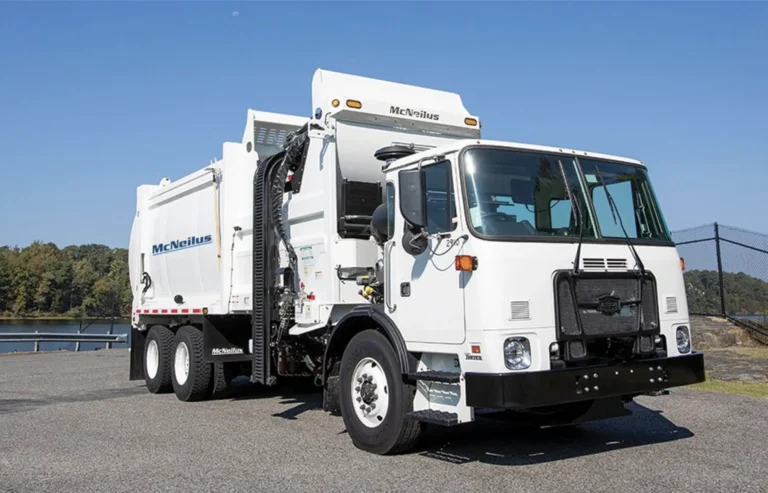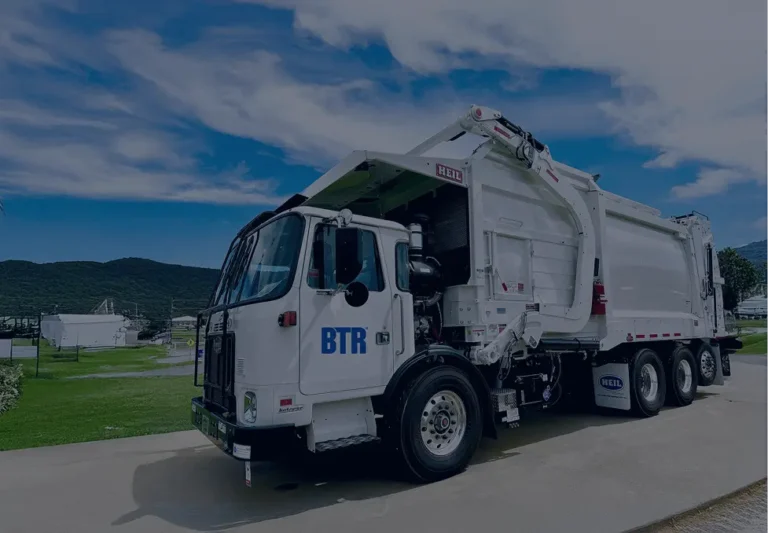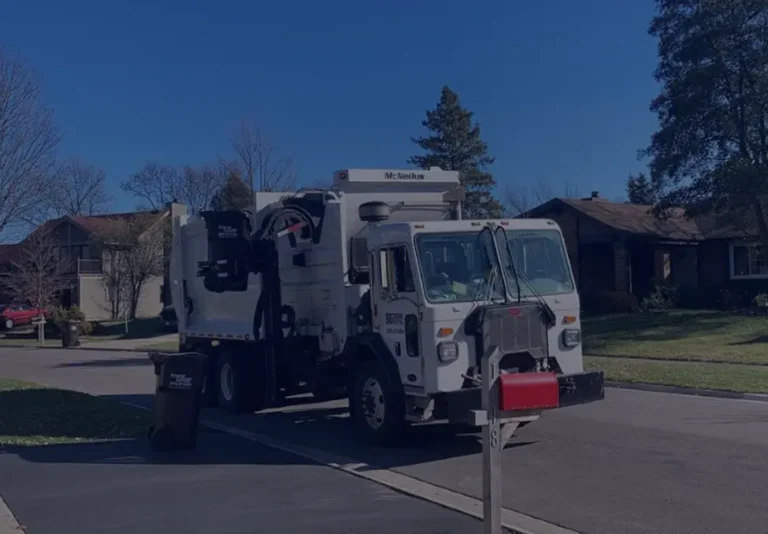Garbage trucks are the backbone of every city’s waste collection system. When they’re running smoothly, residents barely notice them. However, when trucks break down, entire routes stall, mechanics work overtime, and costs begin to climb rapidly. Aging municipal garbage trucks often become a financial burden that cities can’t ignore.
Instead of pouring money into repairs and unpredictable maintenance, more municipalities are switching to Big Truck Rental’s complete fleet rental model. It gives cities a modern, cost-effective solution that keeps budgets predictable and garbage collection on schedule.
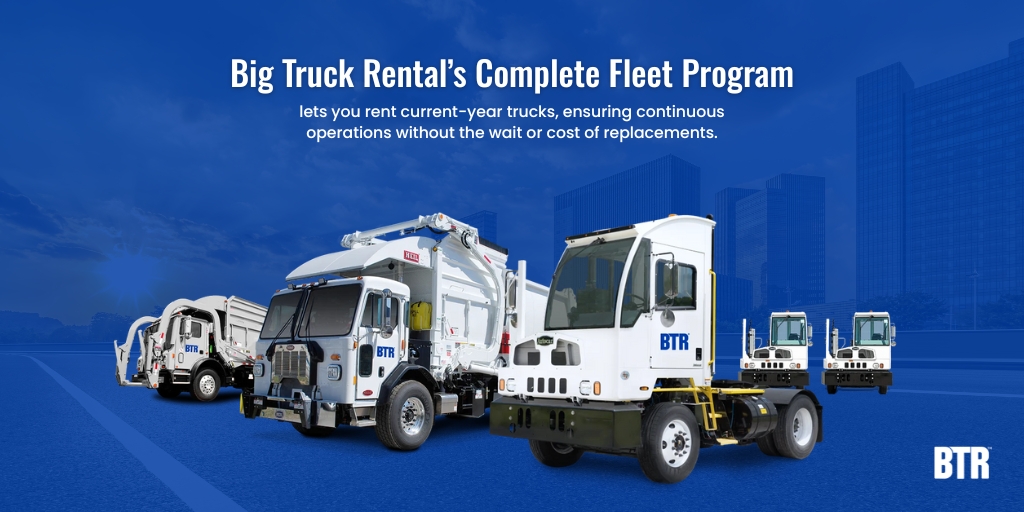
The Hidden Costs of Keeping Old Trucks
Old trucks may appear cheaper to maintain initially, but over time, they become one of the biggest budget drains for municipalities. As garbage trucks age, they require more repairs, part replacements, and mechanic hours, which accumulate quickly and eat into city budgets.
Here are some of the hidden costs of keeping old trucks:
Frequent Repairs and Parts Replacement
Older garbage trucks need constant attention. Hydraulic leaks, worn-out lifts, and failing electrical systems are common as trucks pass their prime. Replacement parts also get harder to find, which adds both time and expense to every repair. What starts as a few fixes a year can grow into a cycle of maintenance that keeps trucks in the shop more than on the road. When that happens, it may be time to replace aging garbage trucks.
Downtime That Disrupts Routes
When a garbage truck breaks down, an entire route can come to a halt. Other trucks must pick up the slack; drivers work longer hours, and overtime costs increase. For residents, that means delayed trash collection and more complaints. For the city, it means overtime pay for mechanics and operators trying to catch up. In short, downtime creates a ripple effect that affects every part of the operation, from fleet managers to front-line crews.
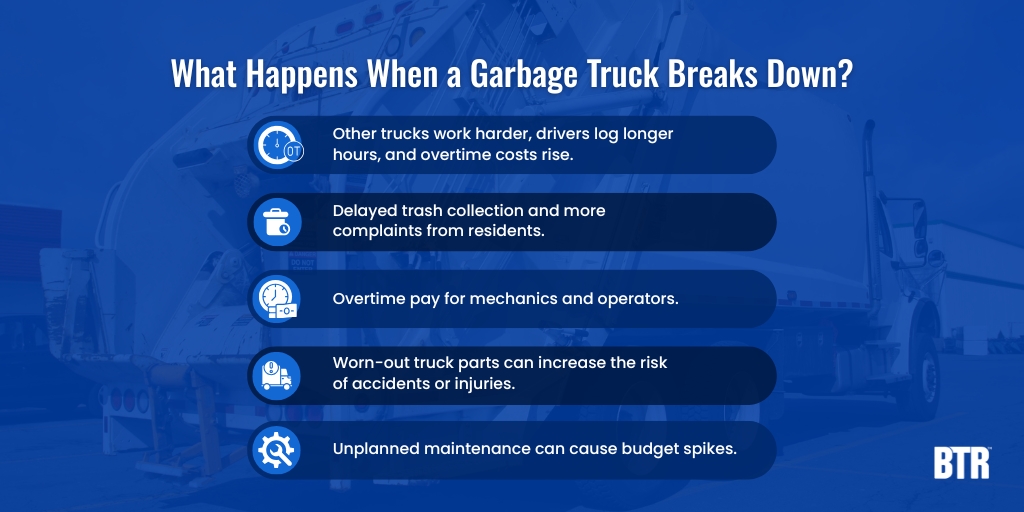
Safety and Compliance Risks
Aging trucks also bring safety challenges. Worn brakes, aging hydraulics, and outdated lift systems increase the risk of accidents or injuries. These issues not only endanger operators but also lower morale.
Drivers take pride in working with dependable, well-maintained equipment. If they feel unsafe behind the wheel, motivation drops and turnover increases. Keeping newer, safer trucks on the road enhances efficiency and demonstrates to employees that their safety is a top priority.
It also helps cities avoid violations from failed inspections or compliance checks. Staying aligned with EPA vehicle certification standards ensures your fleet meets today’s safety expectations without the need for expensive overhauls.
Budget Implications
Owning older garbage trucks often creates unpredictable capital expenses (CAPEX). Emergency repairs, part replacements, or unplanned maintenance can cause budget spikes, making long-term planning difficult.
By comparison, renting offers predictable operating expenses (OPEX). Instead of facing surprise repair costs, municipalities can rely on consistent monthly payments that include maintenance coverage.
Here’s a simple breakdown:
| Category | Owning (CAPEX) | Renting (OPEX) |
| Initial Cost | Large upfront purchase | No purchase cost |
| Maintenance | Paid by the city, often unpredictable | Included in the rental agreement |
| Budget Planning | Unpredictable, fluctuates yearly | Fixed and predictable |
| Fleet Upgrades | Requires new capital funding | Current models are available anytime |
| Downtime Impact | High repair delays | Minimal with a maintained fleet |
This comparison highlights why more cities are choosing to rent. It replaces unpredictable expenses with a stable monthly cost while ensuring trucks are ready when needed.
Replacement and Rental as a Strategy
Many municipalities now use rental trucks as part of their long-term fleet strategy. These rentals provide practical solutions for aging garbage trucks when new units are delayed or budget limits prevent new purchases. Rental units serve as “bridge trucks” to maintain uninterrupted service.
Renting also helps cities handle seasonal peaks or temporary route expansions without committing to major capital investments. With Big Truck Rental, cities gain access to reliable rear loaders, side loaders, front loaders, and other types of garbage trucks for rent whenever needed.
This flexibility enables operations to run smoothly while protecting budgets from sudden strain.
Case Example: Large Urban Municipality in Ohio
A large municipality in Ohio serving hundreds of thousands of homes faced persistent disruptions due to aging trucks, missed routes, and costly overtime.
Before BTR: Downtime Rising with Age
- Downtime hours per truck increased year over year.
- By Year 10 of their ownership cycle, downtime exceeded 1,400 hours annually per truck, leading to missed routes and public complaints.
After BTR: Proven Uptime and Reliability
- 16 BTR trucks were introduced in September/October 2023.
- 2,755 total operational days delivered over 6 months.
- Only 77 downtime days (manufacturer-related).
- Achieved 97.2% fleet uptime, up from 60%.
For a more detailed look at this case study and additional municipal data, please refer to Big Truck Rental’s 2025 Municipal White Paper.
Final Thoughts
The financial risks associated with aging municipal garbage trucks extend far beyond repairs. They impact safety, morale, and community satisfaction. Each breakdown costs more than just parts and labor; it affects the entire city.
Big Truck Rental helps municipalities replace uncertainty with stability. With flexible rental options and predictable costs, your city can maintain efficient, safe, and on-budget waste collection. Request a quote from Big Truck Rental to minimize downtime and eliminate unexpected repair costs.
FAQs
What is Big Truck Rental’s Complete Fleet program?
The Complete Fleet program offers waste haulers and municipalities ongoing access to the latest model trucks. Instead of buying or waiting for replacements, you can rent current-year vehicles and keep operations running without interruption.
What’s the difference between CAPEX and OPEX for fleets?
CAPEX refers to large, one-time purchases, such as buying trucks outright. OPEX covers ongoing costs such as rentals or maintenance. With Big Truck Rental, cities can turn unpredictable repair and replacement costs into steady, easy-to-budget operating expenses.
Who benefits most from the Complete Fleet program?
It’s built for municipalities with aging fleets, haulers growing faster than their budgets, and cities increasing collection frequency. Basically, anyone who needs reliable trucks fast without the burden of ownership.

